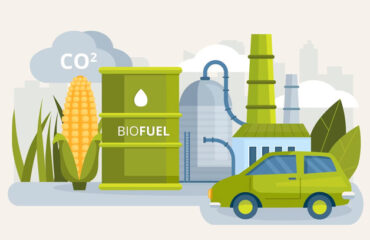
In an era marked by the growing concern for the environment and a global shift towards sustainable energy sources, India is embarking on a path to energy independence through an Ethanol Revolution. This revolution is poised to transform the country’s energy landscape, significantly reduce its dependence on fossil fuels, and, most importantly, contribute to a cleaner and greener future.
The Significance of Ethanol: Ethanol, a renewable alcohol-based fuel derived from food grains like maize, has emerged as a pivotal player in the global effort to combat climate change. It is recognized for its eco-friendliness and the promise of cleaner emissions. What sets ethanol apart is its source – food grains – and the high-quality ethanol produced from these grains, particularly due to their starch content.
Starch-rich feedstocks, like maize, form the cornerstone of ethanol production in India. This renewable resource serves as the raw material for an efficient and sustainable energy source. When transformed into ethanol, it offers higher energy content and cleaner combustion compared to other sources. This makes it a preferred choice in India’s mission to reduce its carbon footprint.
Reducing Dependence on Fossil Fuels: India’s adoption of ethanol production and blending in its energy sector is nothing short of revolutionary. The policy of blending 20% ethanol with petrol is a remarkable step towards curbing carbon emissions and reducing reliance on fossil fuel imports. This policy not only bolsters the country’s energy security but also presents a unique opportunity for a healthier environment.
The significance of this policy extends beyond the boundaries of the nation. In the global context, as more countries embrace ethanol production and blending, its value grows. It reduces the collective dependence on fossil fuels, mitigating the environmental damage caused by their consumption.
A Greener and More Sustainable Future: The Ethanol Revolution in India represents a beacon of hope for a cleaner and greener world. As the country makes strides in ethanol production, it is simultaneously fostering economic development and promoting ecological harmony. Ethanol not only powers our vehicles but also fuels the vision of a more sustainable future.
As India positions itself as a dominant player in the Global Biofuel Alliance through top-tier ethanol exports, it contributes significantly to the global sustainability agenda. The production of ethanol from food grains like maize showcases a sustainable approach that efficiently utilizes resources.
Conclusion: The road to energy independence through India’s Ethanol Revolution is a promising journey towards a more sustainable and eco-conscious future. The significance of ethanol as a renewable and high-quality fuel source cannot be overstated. By reducing its dependence on fossil fuels, India is not only enhancing its energy security but also playing a vital role in the global shift towards sustainability.
As the nation embraces this revolutionary path, it fosters regional development, supports farmers, and reduces its carbon footprint, all while positioning itself as a global leader in the biofuel industry. India’s vision of a cleaner, greener world is not just an aspiration but a reality in the making, and ethanol is the driving force behind this transformation.

